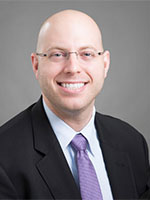Article:
Gottlieb M, Chung A, Battaglioli N, Sebok-Syer SS, Kalantari A. Imposter syndrome among physicians and physicians in training: A scoping review. Medical Education in Review. 2019; epub ahead of print. doi:10.1111/medu.13956.
Summary:
This paper describes a scoping review analyzing the literature on imposter syndrome among physicians and physicians in training. Imposter syndrome is increasingly recognized in medicine, and is associated with increased rates of burnout and suicide. The authors conducted a literature search of nine databases and performed quantitative and qualitative syntheses of 18 identified articles. They found that most studies utilized the Clance Imposter Phenomenon Scale (CIPS) and cited rates of imposter syndrome ranging from 22-60%. The investigators found factors associated with higher rates of imposter syndrome included gender, low self-esteem and institutional culture. Factors associated with lower rates of imposter syndrome included social support, validation of success, positive affirmation, and both personal and shared reflections. Imposter syndrome was also associated with higher rates of burnout. For this post, Gretchen Winter interviewed first author Michael Gottlieb.
Interview:
GW: What sparked your interest in this study? Why study imposter syndrome?
MG: Imposter syndrome affects a large number of people in all fields. However, it is particularly prevalent in medicine. In fact, studies have found that rates can range from 22% to 60% of physicians and physicians-in-training. My co-investigators and I wanted to better understand imposter syndrome, what factors were protective, what factors exacerbate it, and how we can help others who are struggling with this at all stages of their careers.
GW: You mentioned a number of negative effects of imposter syndrome, but also the potential positive aspects of imposter syndrome. What would you say to people who argue that imposter syndrome is a natural part of being a high-achiever and actually drives success, and thus doesn't need to be combatted?
MG: I don’t believe that this is a strictly unilateral issue. The impact of imposter syndrome on one’s career can vary based upon each individual person and may change over time. Feelings of “imposterism” can push some people to work harder and become more successful, while others can become frozen in place. High self-expectations are important for being successful; however, one must also be able to see the goals as achievable and realistic. Imposter syndrome can directly inhibit that last piece, making even achievable goals seem too far out of reach.
GW: What are your thoughts on why there was such a wide range of reported prevalence of imposter syndrome in medical students?
MG: I think it is hard to compare the prevalence between studies for a number of important reasons. First, imposter syndrome is not necessarily a dichotomous (Yes/No) phenomenon. While many studies utilize a dichotomous threshold for research purposes, imposterism is really a spectrum and having a score on the CIPS of 59 versus 63 is probably not that different, though it would be the difference between being diagnosed with imposter syndrome versus not having this in many studies. Additionally, one’s feelings of imposterism can change over time and the findings may be influenced by recent events for each person in the study, as well as timing throughout their training. A first-year medical student in the first month of training may feel very differently than a fourth-year medical student completing their last month of training. Finally, studies were conducted at different institutions in different countries, which may have influenced this by adding a number of potential confounders.
GW: The factors that were associated with less imposter syndrome are hard to intervene upon. How do we increase someone's social support, create enough positive affirmation or validation (difficult for faculty to do consistently with brief interactions during medical education)? Things like institutional support and creating culture change are important, but are also lengthy and difficult interventions to tackle.
MG: Interestingly, many of the strategies mentioned above are not unique to imposter syndrome and can also influence wellness, burnout, and depression. While these can be more challenging to address, I believe it is incumbent upon us as a field to address these issues. These need to be addressed from an institutional perspective but can also be impacted at the individual level. So often in medicine it is too easy to focus on the negatives when we should be highlighting the positives and ensuring that we are there to support our colleagues. Culture change often starts with one person and requires people to work together towards a common goal.
GW: If you were to design one or a few studies to look at tangible interventions for imposter syndrome, where would you suggest starting?
MG: One of the inherent challenges of studying this is that a single intervention can be difficult to separate out from the multiple components which can alleviate and exacerbate one’s degree of imposterism. One approach could be to look at this from the larger scale by instituting awareness and support programs at an institutional level and looking for changes over time. Another approach would be to select a smaller cohort and trial different interventions over time. However, while further studies are needed, I believe it is essential for us as providers to continue to work on supporting others in their professional development and to try to enact institutional change wherever possible.
GW: Is there evidence for the role of mentorship in overcoming imposter syndrome? What are your thoughts on how mentors or peer-mentors can alleviate imposter syndrome in their mentees?
MG: The evidence for mentorship reducing the degree of imposter syndrome within medicine is limited primarily to a qualitative study by Hutchins and Rainbolt (Hutchins, 2017). However, despite limited data, mentorship is valuable for a number of reasons and may help reduce feelings of imposterism. Mentors can help their mentees identify feelings of imposterism. They can also provide much needed encouragement and positive affirmations, which have been shown to help reduce imposter syndrome. Finally, mentors can provide social support – both directly through their roles as mentors, as well as by expanding their mentees’ networks and social support circles.
GW: What would you say to a reader who is struggling with imposter syndrome?
MG: Everyone struggles with imposterism to varying degrees. Keep track of your successes and look back at them whenever you start to feel that it is more severe. Build out your support networks and don’t be afraid to reach out to others – friends, family, colleagues, mentors. With rates of 22% to 66% amongst physicians and physicians-in-training it is likely that others you know are grappling with these same issues.

Blog post author
Dr. Gretchen Winter is an Assistant Professor at the University of Alabama at Birmingham. She graduated from Baylor College of Medicine and completed a combined Internal Medicine and Pediatrics residency at the University of Indiana. She then completed a fellowship in pulmonary and critical care at the Cleveland Clinic. She focuses her clinical work on cystic fibrosis and non-CF bronchiectasis, as well as critical care medicine. Her passions are medical education, physician wellness, and patient-physician communication. She serves on the Education committee for the Association of Pulmonary and Critical Care Medicine Program Directors (APCCMPD) and co-hosts their medical educator podcast. She also serves on the Educator Development Subcommittee for the American College of Chest Physicians and is a podcast editor for the CHEST Journal Podcast.
Twitter handle: @Gretchemaben

Article author
Dr. Michael Gottlieb is the Director of the Emergency Ultrasound Division and Ultrasound Fellowship Director at Rush University Medical Center. He is also the co-creator and Chief Academic Officer for the Academic Life in Emergency Medicine (ALiEM) Faculty Incubator, as well as the President-Elect for the AAEM Ultrasound Section and Secretary/Newsletter Editor for the ACEP Ultrasound Section. He has authored over 180 peer-reviewed publications and is an Editor at Annals of Emergency Medicine, Western Journal of Emergency Medicine, American Journal of Emergency Medicine, and Academic Emergency Medicine Education and Training, as well as the Social Media Editor for Academic Emergency Medicine. He is a nationally recognized speaker and has received several awards, including the Society for Academic Emergency Medicine Academy of Emergency Ultrasound Fellow Education Award, the CORD Academy for Scholarship Distinguished Scholar Award, the AAEM Young Educator Award, and the ACEP National Emergency Medicine Junior Faculty Teaching Award. His academic interests include ultrasound, medical education, and wellness.
Twitter Handles: @MGottliebMD, @RushEmergency



